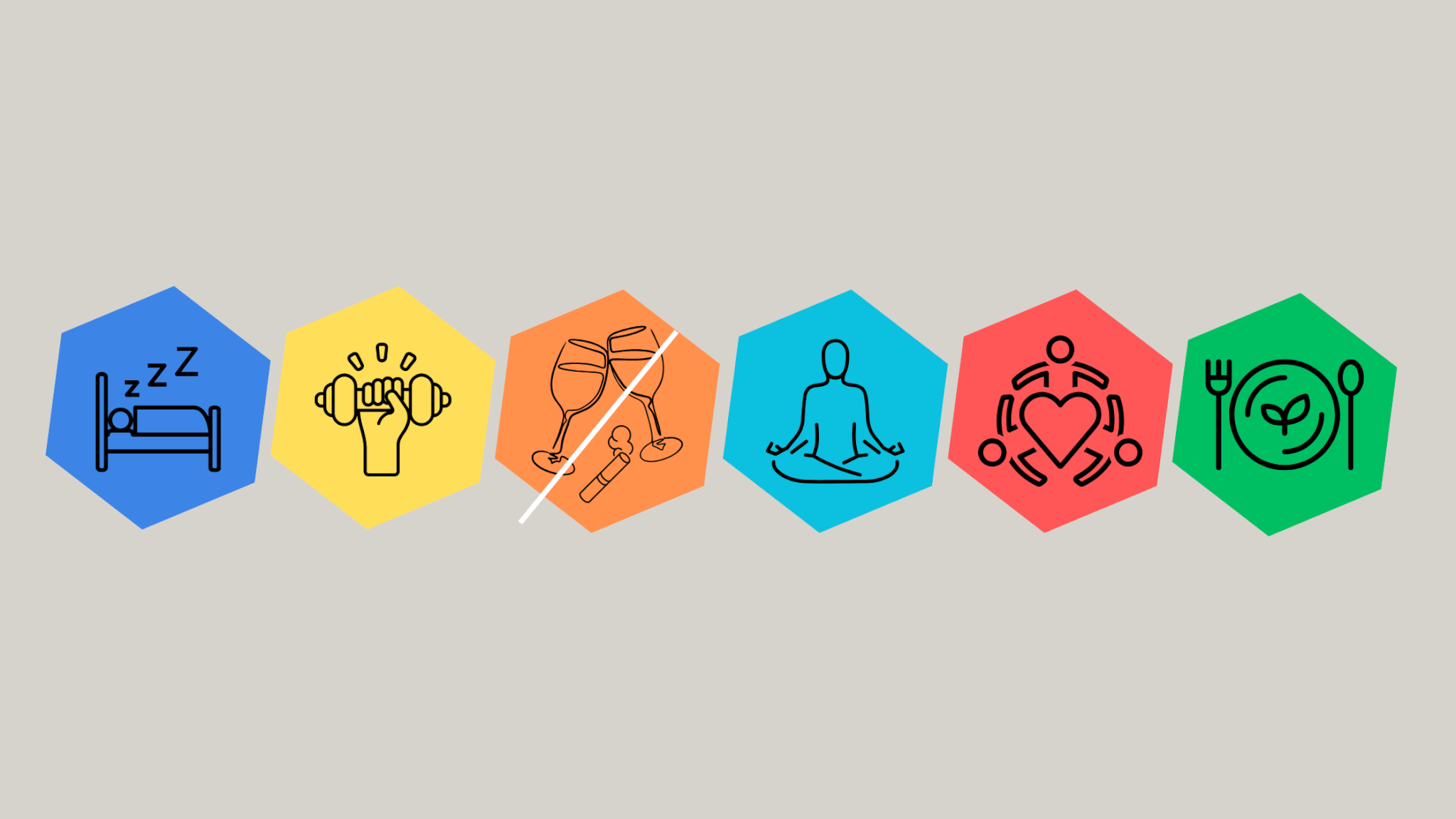Chronic diseases like obesity, diabetes, and cardiovascular disease are common, especially in physically demanding fields like construction. Long hours, high stress, and limited access to healthy options can significantly impact workers’ health. Natural strategies and lifestyle adjustments such as eating right, moving more, and stressing less can help prevent and even reverse many of these conditions, giving workers a healthier and more sustainable future.
Quick looks
- Long hours, high stress, and poor nutrition leave workers vulnerable to conditions like obesity, diabetes, and hypertension, impacting health and productivity.
- Simple, evidence-based changes like balanced nutrition, regular exercise, stress management, and better sleep can prevent or reverse chronic diseases.
- Focusing on whole, nutrient-rich foods rather than cutting calories can stabilize blood sugar, reduce inflammation, and boost energy.
- Sustainable shifts in mindset, stress management, and daily habits can transform the health of AEC workers without overwhelming them.
Chronic disease in construction: The big picture

Chronic disease is a serious issue in the construction world. Long hours, unpredictable schedules, and grab-and-go meal habits leave many workers at risk for preventable health problems. The physically demanding nature of construction doesn’t always equal good health—if anything, it often highlights how crucial proper nutrition, rest, and stress management are. Some of the most common chronic diseases that can plague construction workers include:
- Obesity: Quick meals packed with calories but lacking nutrients make it easy to gain weight.
- Diabetes: A diet high in processed foods and low in nutrients can spike blood sugar levels and lead to Type 2 diabetes.
- Cardiovascular disease (CVD): Stress, poor diets, and smoking all add up to a higher risk of heart problems.
- Hypertension: High stress levels and unhealthy habits often result in high blood pressure.
- Chronic stress and depression: The pressure of long hours and tough conditions can take a mental toll, leading to burnout and emotional strain.
According to MUSC Health and NCBI, these issues aren’t just about feeling unwell but about workers’ safety, productivity, and quality of life. Addressing them can make a world of difference not just for individuals but for the entire industry.
What is lifestyle medicine?
Lifestyle medicine is about making simple, evidence-based changes to how we live to prevent, treat, and even reverse chronic diseases. Think of it as a toolkit filled with practical strategies like eating better, moving more, managing stress, and improving sleep. Instead of just treating symptoms, lifestyle medicine tackles the root causes of many health problems.
Its holistic approach makes it powerful—it doesn’t look at one thing in isolation. For example, better nutrition combined with regular exercise can improve heart health, but the benefits multiply when you add stress management and quality sleep. It’s about creating a sustainable, healthy lifestyle that supports the body and mind.
Lifestyle medicine is gaining momentum because it works. It’s not a quick fix, but its long-term impact can completely change the trajectory of chronic diseases. For workers in construction and other high-stress industries, embracing these small, meaningful changes could be the key to better health and quality of life.
How does lifestyle medicine help reverse (and prevent) chronic disease?
Lifestyle medicine addresses the habits that drive chronic disease and offers meaningful changes to improve overall health. Small adjustments in how we eat, move, and handle stress can significantly reduce the risk of conditions like diabetes, heart disease, and obesity—and even reverse them.
Nutrition: The foundation of health
Eating the right foods fuels your body and supports essential functions like regulating blood sugar and reducing inflammation. Swapping out processed foods for whole, nutrient-rich options can be a game-changer for energy levels and long-term health.
Physical activity: More than just fitness
While construction requires a lot of physical labor, regular exercise can strengthen your heart, improve circulation, and boost your mood. Even simple activities like walking or stretching can have a big impact, especially for those in physically demanding jobs like construction.
Emotional well-being: The missing link
Chronic stress takes a toll on both the mind and body. Learning to manage stress through mindfulness, relaxation techniques, or even talking to someone can reduce the risk of diseases linked to high cortisol levels, like hypertension and heart disease. For construction workers who often face long hours and high stress, prioritizing health can make a huge difference in staying strong and thriving on the job.
Calories aren’t the whole story
Many people focus solely on cutting calories when managing weight and reversing chronic disease. But the truth is, it’s not just about how much you eat—it’s about what you eat and how your body responds to it.
Food quality over quantity
Not all calories are created equal. Eating more calories from whole, nutrient-dense foods can lead to better results than simply eating less of the wrong foods. For instance, 200 calories from leafy greens or lean protein fuel your body differently than 200 calories from soda or processed snacks. You don’t need to starve to lose weight or improve your health; often, eating more of the right food can lead to weight loss and better health. Foods rich in nutrients support your metabolism, help regulate blood sugar, and keep you feeling full longer. For people in AEC, understanding that it’s about the right fuel—not just less fuel—can significantly affect energy, performance, and overall well-being.
The glucose-insulin connection
When we eat foods high in refined carbs and sugar, our blood sugar levels rise quickly, prompting a surge of insulin to bring those levels down. Over time, this cycle can lead to insulin resistance, a critical factor in chronic diseases like Type 2 diabetes and obesity. Stabilizing glucose and insulin responses is critical for weight management and disease prevention.
Stress and insulin resistance
Chronic stress affects mood and can disrupt metabolism. Stress hormones like cortisol can increase blood sugar levels, making it harder for your body to use insulin effectively, a condition known as insulin resistance. This is why managing stress is just as important as eating right for overall health.
Nutritional guidelines to naturally reverse chronic disease

The foods we eat play a huge role in both causing and reversing chronic diseases. Making mindful dietary changes can help reduce inflammation, stabilize blood sugar levels, and support overall health. Here are some essential nutritional strategies to focus on:
1. Reduce processed and refined carbohydrates
Refined carbs and added sugars may be convenient, but they wreak havoc on your body. These foods cause rapid blood sugar spikes followed by energy crashes, promoting inflammation and increasing your risk of conditions like diabetes and heart disease. Swapping sugary snacks for whole foods like fruits, vegetables, and whole grains helps stabilize blood sugar and reduce inflammation.
2. Eat more protein
Protein is essential for building muscle, maintaining steady blood sugar levels, and staying full longer. Including protein-rich foods like lean meats, eggs, beans, or tofu in every meal can help reduce cravings and provide the energy your body needs to repair and recover, especially after physical work.
3. Switch to healthy fats
Not all fats are bad. Omega-3 fatty acids in foods like salmon, walnuts, and flaxseeds help fight inflammation and improve heart health. Replacing trans fats and processed oils with healthy fats like olive oil or avocados supports brain function and reduces your risk of chronic diseases.
4. Be mindful of grains
Grains can be a great energy source, but many grains can be treated with pesticides like glyphosate, which have been linked to health concerns. Opt for organic or ancient grains like quinoa, farro, or millet to avoid unnecessary chemicals and enjoy their natural nutrients.
5. Stay hydrated and limit sugary drinks
Dehydration can make you feel fatigued and impair your body’s natural detox processes. To stay hydrated and support your metabolism, stick to water, herbal teas, or drinks with minimal added sugar. Electrolyte drinks can also boost hydration and replace essential minerals lost through sweat.
6. Include fiber-rich foods
Fiber is a powerhouse for gut health and blood sugar regulation. Foods like beans, lentils, fruits, and vegetables keep your digestion running smoothly and help lower cholesterol and reduce inflammation.
7. Watch your portion sizes (without obsessing)
It’s easy to overeat, even with healthy foods, especially after a long day of physical work. Pay attention to portion sizes, but don’t stress about perfection. Listening to your body’s hunger and fullness cues can go a long way in maintaining a balanced diet.
Lifestyle guidelines for reversing chronic disease

While nutrition is a cornerstone of health, lifestyle factors play an equally important role in reversing chronic diseases. Incorporating small, manageable changes to your daily routine can significantly impact your well-being. Here are a few areas to focus on:
1. Sleep: The ultimate recovery tool
Getting 7-9 hours of quality sleep isn’t just a luxury—sleep helps your body repair and recover. Sleep helps regulate hormones, reduce inflammation, and support a healthy immune system. Without enough rest, your risk for conditions like obesity, diabetes, and heart disease increases. Prioritize and optimize sleep by setting a consistent bedtime and creating a relaxing evening routine.
2. Stress management: A game-changer for health
Chronic stress can wreak havoc on your body, contributing to everything from high blood pressure to insulin resistance. Finding ways to manage stress is critical for reversing its effects. Simple techniques like mindfulness, meditation, deep breathing, or a quick walk can help calm your mind and lower stress hormones like cortisol.
3. Mindset shift: Progress over perfection
Your mindset can shape your health journey. Cultivating a proactive, growth-oriented outlook helps you focus on what’s possible rather than dwelling on setbacks. Consider what small changes you can make today instead of thinking about what you “can’t” do. Celebrate progress, and remember that every step toward better health counts.
Bottom line
Chronic disease doesn’t have to define your life. By making natural, lifestyle-based changes—like improving your nutrition, managing stress, prioritizing sleep, and staying physically active—you can take control of your health and even reverse many chronic conditions. It’s not about perfection but small, consistent steps that add up to big results.
Ready to take the next step? Subscribe to our newsletter for more actionable tips, expert advice, and inspiration to keep you on track toward better health. Your journey starts today!


